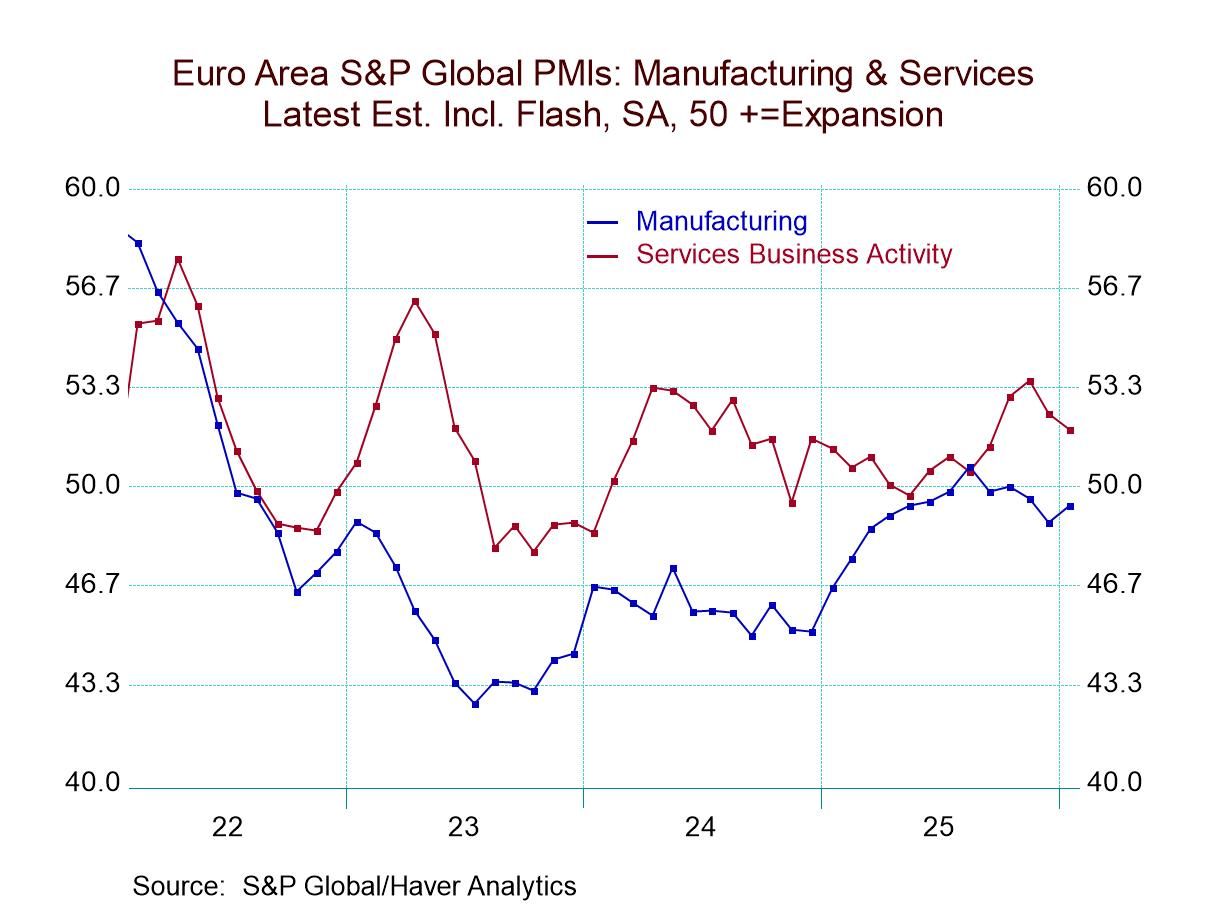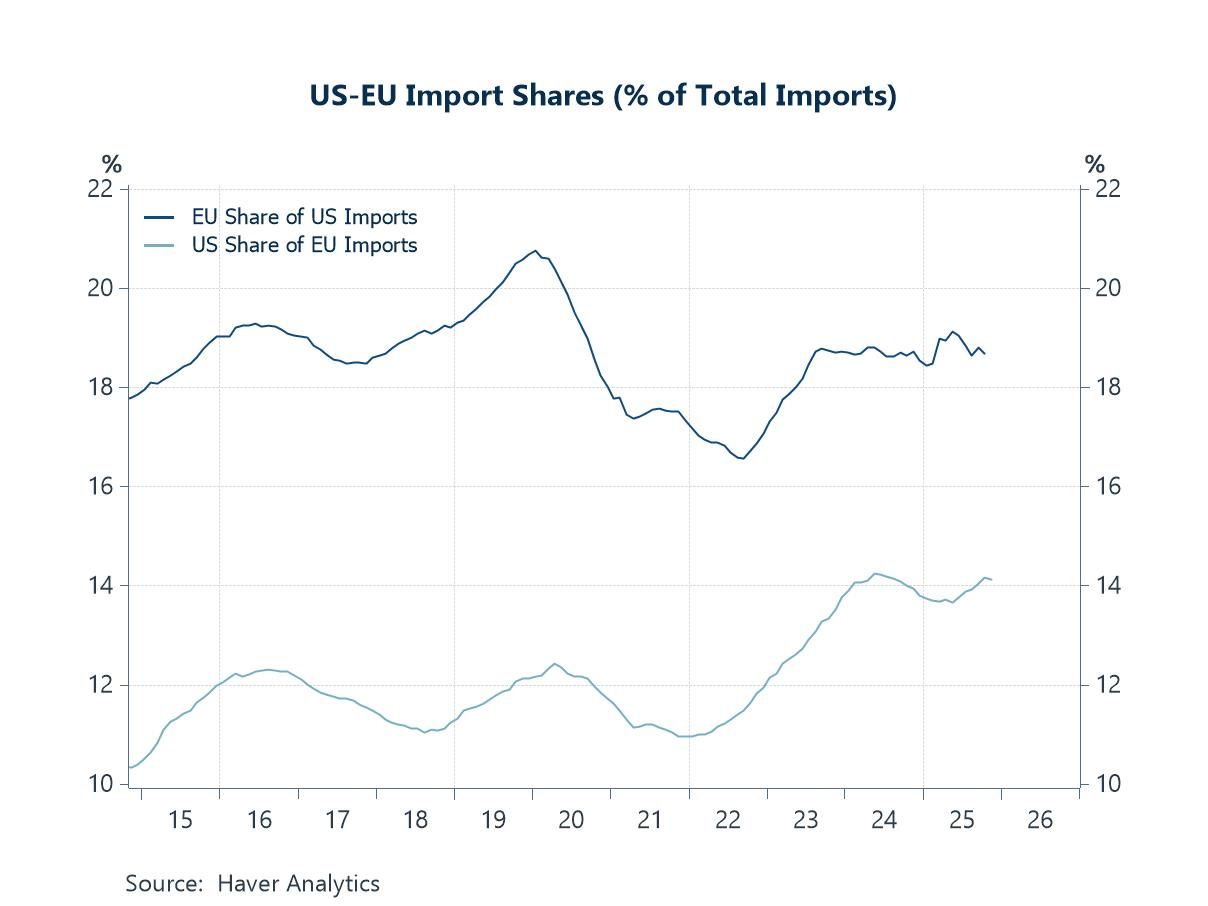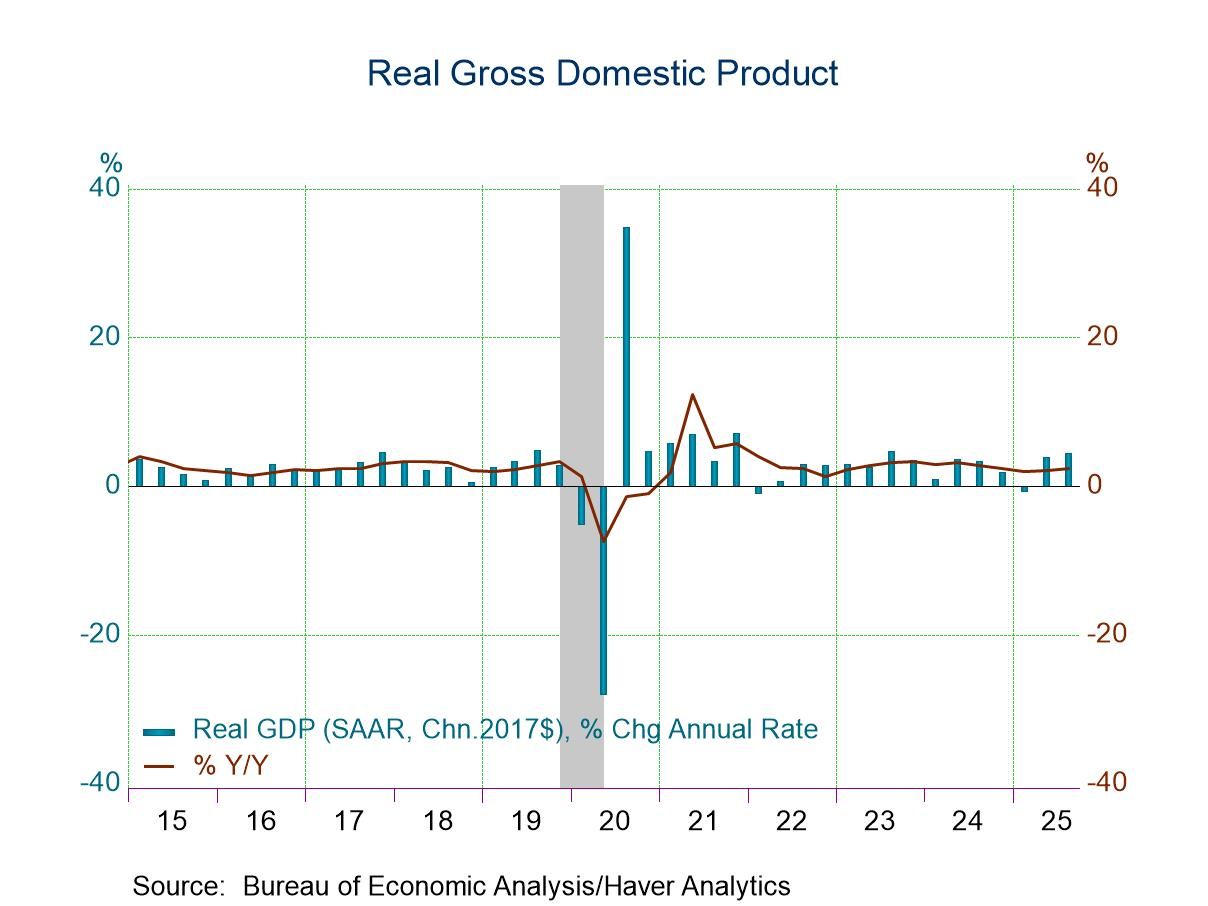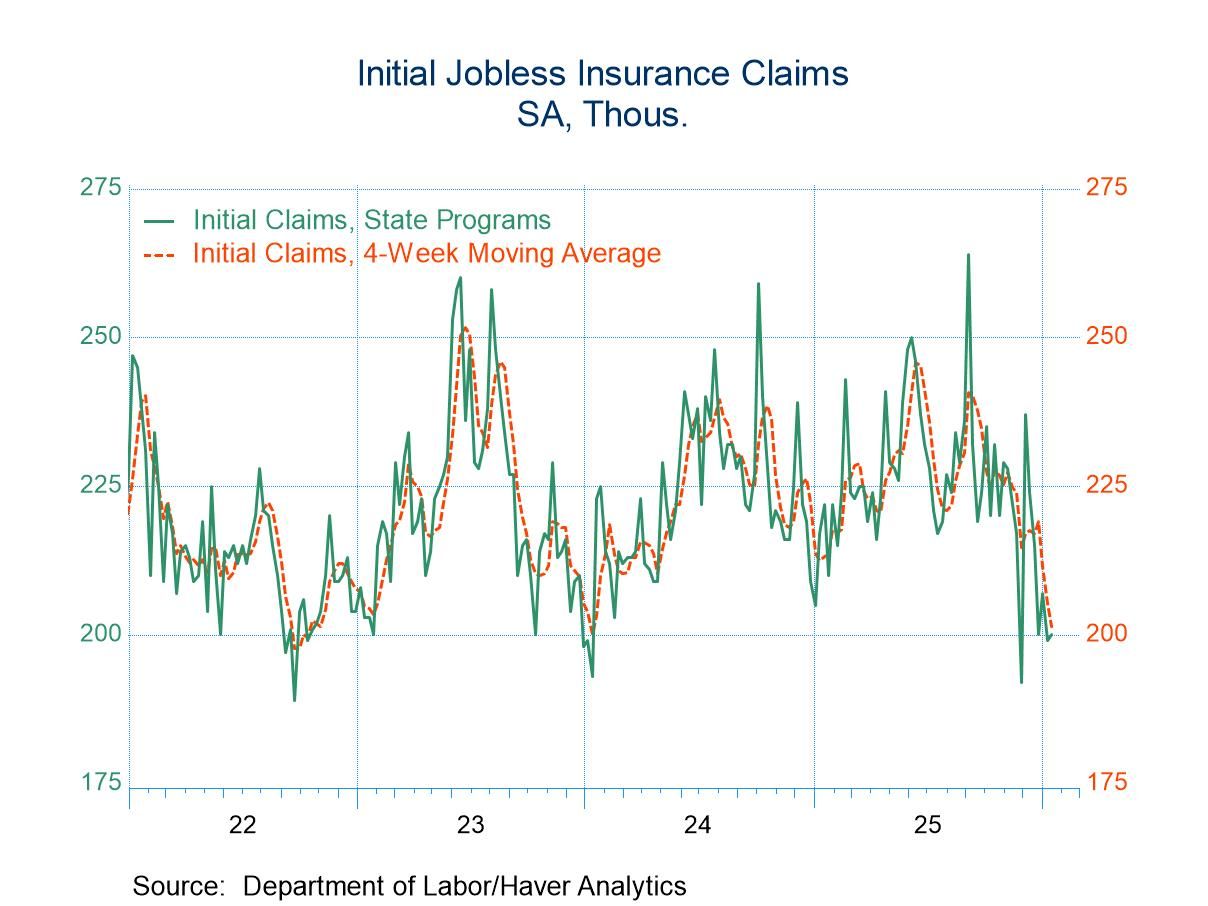 Global| Feb 08 2012
Global| Feb 08 2012German Trade Surplus Shrinks as Exports and Imports Wither
Summary
German exports and imports are locked in clear withering trends. The trends in the table all show a loss in momentum and a number of trends show negative growth has emerged not just slower positive growth. Germany is a very trade- [...]
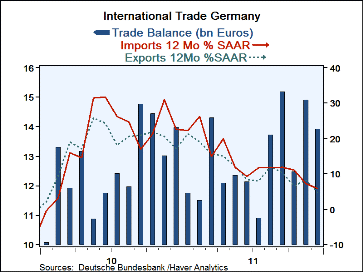 German exports and imports are locked in clear withering trends. The trends in the table all show a loss in
momentum and a number of trends show negative growth has emerged not just slower positive growth.
German exports and imports are locked in clear withering trends. The trends in the table all show a loss in
momentum and a number of trends show negative growth has emerged not just slower positive growth.
Germany is a very trade-dependent nation. Its export sector always recovers first and its consumer sector lags behind. Right now all sectors are lagging and the drag from trade is becoming more worrisome.
The concern about trade is not just a smaller surplus that adds less to GDP, but the withering trends in exports and imports per se. Withering export growth points to slowing growth abroad while withering imports point to slower growth at home, in Germany itself. All that cannot add up to good growth prospects.
The sole bright spot in this report is the 3-mo jump in real export orders. But that has already been reported it is not news form this report. Moreover, with the volatility in export orders it’s good to keep the unreliability of that signal in mind. Foreign export orders still are lower over six months and are even down slightly year-over-year. Knowing the trends in the global economy, it is a bit hard to know where a spurt in German export orders have come from over the last three-months and what sort of staying power it could possibly have.
We see this German trade report as yet another indication that Europe is not stabilizing and reversing its decline so much as it was pausing in its rate of decline toward the end of the year in the midst of a serious unwind. Aside from some bouncing PMI data, which are based on notoriously sensitive diffusion indices, there has been nothing fundamental to signal a turnaround in Europe’s or Germany’s ongoing plummet. And the situation in Greece, whether resolved or not, is not going to help matters much. Conditions in the Zone are going to continue to be challenging. The difficulties in Greece are likely to shine a light on similar difficulties elsewhere. In that way, the problems in the Zone are more likely to spread than to find that the approach in Greece has been part of a real solution.
| German Trade Trends for Goods | |||||||
|---|---|---|---|---|---|---|---|
| M/M% | % SAAR | ||||||
| Dec-11 | Nov-11 | 3M | 6M | 12M | 12MPrev | 2Yr Ago | |
| Balance* | € 13.94 | € 14.94 | € 13.79 | € 13.54 | € 12.96 | € 12.66 | € 11.47 |
| Nominal EXPORTS | |||||||
| Goods Exports | -4.3% | 2.6% | -17.5% | -3.5% | 4.7% | 22.5% | 21.1% |
| Capital gds | -- | 1.1% | -1.7% | 2.3% | 11.3% | 21.5% | -8.6% |
| Motor Vehicles | -- | -0.7% | -26.1% | 1.0% | 11.4% | 13.7% | 2.0% |
| Consumer Gds | 4.3% | 10.8% | 8.6% | 15.8% | 5.4% | -10.2% | |
| Nominal IMPORTS | |||||||
| Goods Imports | -3.9% | -0.2% | -15.0% | -8.6% | 5.8% | 29.8% | 18.7% |
| Capital goods | -- | -2.8% | 17.6% | 0.1% | 3.9% | 36.9% | -14.5% |
| Motor Vehicles | -- | 2.8% | 29.7% | 15.2% | 12.8% | 25.4% | -6.0% |
| Consumer goods | -- | -0.5% | -13.8% | 3.0% | 11.6% | 12.9% | -13.8% |
| Ratio X:M | 119.2% | 119.7% | 120.1% | 116.2% | 118.5% | 128.6% | 116.7% |
| Real X -orders | 4.3% | -7.8% | 17.2% | -16.4% | -0.7% | 23.8% | 34.7% |
| Real Exports | -- | 3.7% | 0.7% | 2.6% | 3.6% | 15.0% | -1.9% |
| Real Imports | -- | 1.7% | -7.1% | -10.3% | 0.3% | 17.5% | -5.5% |
| Real Ratio X:M | -- | 128.1% | 127.6% | 119.8% | 124.0% | 126.7% | 122.0% |
| *Eur Blns; mo or period average; Shaded area trends lag one Mo | |||||||
Robert Brusca
AuthorMore in Author Profile »Robert A. Brusca is Chief Economist of Fact and Opinion Economics, a consulting firm he founded in Manhattan. He has been an economist on Wall Street for over 25 years. He has visited central banking and large institutional clients in over 30 countries in his career as an economist. Mr. Brusca was a Divisional Research Chief at the Federal Reserve Bank of NY (Chief of the International Financial markets Division), a Fed Watcher at Irving Trust and Chief Economist at Nikko Securities International. He is widely quoted and appears in various media. Mr. Brusca holds an MA and Ph.D. in economics from Michigan State University and a BA in Economics from the University of Michigan. His research pursues his strong interests in non aligned policy economics as well as international economics. FAO Economics’ research targets investors to assist them in making better investment decisions in stocks, bonds and in a variety of international assets. The company does not manage money and has no conflicts in giving economic advice.



